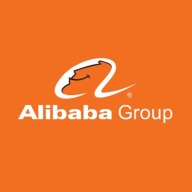

Microsoft Azure and Alibaba Cloud compete in the cloud services sector. While Microsoft Azure has an edge due to its extensive global reach and versatility, Alibaba Cloud offers competitive pricing, particularly in Asia, making it appealing for budget-conscious businesses in that region.
Features: Microsoft Azure provides a comprehensive range of cloud services with significant global reach and flexibility in deployment. It supports various programming environments for seamless integration across platforms. Alibaba Cloud is notable for its cost-effectiveness in Asia, with a focus on scalability and infrastructure services that make it a favorable option for organizations looking to minimize expenses.
Room for Improvement: Microsoft Azure could enhance its debugging and logging management, address pricing complexity, and improve scalability. It also needs to provide better support for non-Microsoft platforms. Alibaba Cloud should improve its SDK and API support, enhance integration features, and offer more efficient customer service. The interface could be more user-friendly, and latency issues deserve attention for better performance.
Ease of Deployment and Customer Service: Microsoft Azure is widely deployed in public and hybrid cloud environments, serving diverse user needs with generally robust technical support, although initial support levels can exhibit variability. Alibaba Cloud is primarily deployed in public cloud settings and is known for its cost-effectiveness in Asia, but its support service quality varies, with noted communication challenges and a need for improved technical assistance.
Pricing and ROI: Microsoft Azure's pricing is typically higher but offers flexible usage-based models, providing good ROI through rapid scalability and cost management. However, its pay-as-you-go model can unexpectedly raise expenses. Alibaba Cloud attracts users with lower pricing, particularly in China, offering a cost-effective alternative. Both platforms have incentives for committed use, though Microsoft's pricing complexity is a challenge for some.
| Product | Market Share (%) |
|---|---|
| Microsoft Azure | 9.9% |
| Alibaba Cloud | 7.2% |
| Other | 82.9% |


| Company Size | Count |
|---|---|
| Small Business | 10 |
| Midsize Enterprise | 3 |
| Large Enterprise | 7 |
| Company Size | Count |
|---|---|
| Small Business | 140 |
| Midsize Enterprise | 54 |
| Large Enterprise | 149 |
Alibaba Cloud offers a comprehensive suite of cloud computing services to support growing enterprises worldwide, including data storage, relational databases, big-data processing, and content delivery networks.
Microsoft Azure integrates services and offers flexibility, ensuring compatibility with diverse environments. Its scalability, security, and cost-efficient features enhance deployment and management, making it ideal for infrastructure services and application hosting.
Azure provides a comprehensive suite of tools for application deployment, virtual machine management, and data analytics. It allows seamless integration with Power BI and offers a user-friendly interface supported by detailed documentation and technical support. Though users appreciate its capabilities, they sometimes face challenges with costs, setup, and interface complexity, alongside integration and performance issues. Frequent updates and a learning curve are also noted, though Azure's cloud-based security and scalability remain critical for disaster recovery and business continuity.
What are Azure's key features?Microsoft Azure is widely implemented in industries like financial services, healthcare, and logistics for hosting enterprise applications and vital services. Companies utilize its capabilities for IoT applications, DevOps, and Kubernetes clusters, benefiting from its cloud migrations, data analytics, and active directory support.
We monitor all Infrastructure as a Service Clouds (IaaS) reviews to prevent fraudulent reviews and keep review quality high. We do not post reviews by company employees or direct competitors. We validate each review for authenticity via cross-reference with LinkedIn, and personal follow-up with the reviewer when necessary.